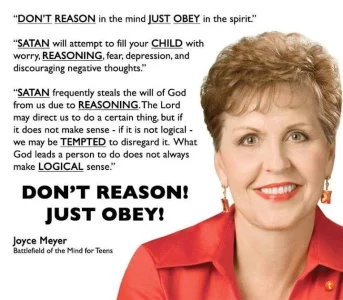D
Deleted member 16771
@Reason let's make it happen.British Empire 2 Electric Boogaloo
@Reason let's make it happen.British Empire 2 Electric Boogaloo
It really depends on the individual I think. Most of the people I've worked with had hardships in their native country that they wanted to sever the connection permanantly.
However, one woman med student comes back to mind. Chloe we'll call her. Came to the US through her villiage and government funding to study here in the States and then go back to practice medicine in her villiage. While here she decided she'd like dual citizenship so that it would be easier for her to return for more schooling. In doing so she picked the US as her resident country which made her elgible for financial aid. The last I was in contact with her though she'd been doing her "internship" in her villiage.
@Reason let's make it happen.
Heh.You asking Reason for help or me?
I mean, we could marry Prince George to Ivanka Trump. Go back to the good old days of Personal Unions.
Would virginity fall under the modesty virtue, you think?




Mindless drone behaviorSubordination for the sake of subordination
I think your explanation explains my reasoning quite nicely
This may boil down to the following question: how does one practice being magnanimous? I know what it means to practice being generous, being kind, being courageous... But I'm not sure I know what it means to practice being magnanimous. And yet, it seems essential to the definition of a virtue that it be possible to practice it and thereby become 'better' at it.
Disobedience is ugly.
Disobedience is ugly.
man asks me to rape someone. I am disobedient

I would like to know, in your opinion.
It could be within context of your own personal life or within the context of society or the human race - which virtue do you think is most overrated.
Here is a pretty long list I was able to find:
https://www.familiesofcharacter.com/devblog10809/2018/3/21/what-are-the-40-virtues-full-list
I did not vet this source- I admit.
Here they are in this spoiler:
- Orderliness: achieving our goals by doing the things we should do, when we should do them, and how we should do them. This is also involved with keeping oneself physically clean and neat and one’s belongings in good order.
- Generosity: the attitude and habits we demonstrate when we give towards the needs of others in a willing and cheerful manner.
- Fortitude: the courage to stand up for what is right, even in the face of pressure.
- Prudence: the virtue that allows us to determine what’s right and what’s wrong and then act accordingly. Prudence could also be called wisdom.
- Justice: giving to others what they are rightly due.
- Temperance: controlling our desires and wants in order to achieve a greater good and meet our life goals. Temperance could also be called self-control.
- Assertiveness: achieving goals by setting appropriate boundaries, asking for help when we need it, and being confident and positive about our abilities.
- Purposefulness: having a vision, clear focus, and concentration on goals.
- Modesty: purity of heart in action, especially in regards to dress and speech.
- Peacefulness: having a sense of inner calm, no matter what is happening around you.
- Service: being helpful to the entire family of man. This can also be called beneficence, which means helping the greater community for the common good.
- Clemency: handling disobedience, poor choices, and disputes in a reasonable and consistent manner by not being too strict, but not being too lax either.
- Helpfulness: being of service to others; doing thoughtful things that make a difference in their lives.
- Kindness: expressing genuine concern about the well-being of others; anticipating their needs.
- Good Counsel: seeking advice from a reasonable person.
- Responsibility: fulfilling one’s just duties; accepting the consequences of one’s words and actions, intentional and unintentional.
- Honesty: sincerity, openness, and truthfulness in one’s works and actions.
- Respect: recognizing the worth and dignity of every single human person.
- Tolerance: allowing other people to have their opinions about non-essential things and accepting the preferences and ideas that are different from your without compromising your own beliefs.
- Perseverance: taking the steps necessary to carry out objectives in spite of difficulties.
- Good judgment: thinking rightly about a decision, sound decision.
- Gratitude: having a thankful disposition of mind and heart.
- Humility: having an awareness that all one’s gifts come from God and appreciation for the gifts of others.
- Obedience: assenting to rightful authority without hesitation or resistance.
- Patience: remaining calm and not becoming annoyed when dealing with problems or difficult people. This could also mean paying attention to something for a long time without becoming bored or losing interest.
- Command: directly acting upon a sound decision.
- Truthfulness: acting in a way that inspires confidences and trust; being reliable.
- Moderation: attention to balance in one’s life.
- Loyalty: accepting the bond implicit in relationships and defending the virtues upheld by Church, family, and country.
- Courtesy: treating other people with respect, recognizing that all are made in God's image and likeness.
- Affability: being easy to approach and easy to talk to; friendly.
- Sincerity: trustfulness in words and actions; honesty and enthusiasm toward others.
- Prayerfulness: being still, listening, and being willing to talk to God as a friend.
- Magnanimity: seeking with confidence to do great things in God; literally “having a large soul.”
- Docility: willingness to be taught.
- Industriousness: diligence, especially in work that leads to natural and supernatural maturity.
- Foresight: consideration of the consequences of one's action; thinking ahead.
- Patriotism: paying due honor and respect to one's country, with a willingness to serve.
- Meekness: having a serenity of spirit while focusing on the needs of others.
- Circumspection/Tact: careful consideration of circumstances and consequences.
If you find one that is more extensive, feel free to post it. I can maybe add it to OP.
Great thread idea, Odyne.
I'm not sure it can be said that some virtues are 'overrated'. We can surely establish a kind of hierarchy of virtues but only on the basis of an implicit hierarchy of values. For example, on the basis of my own value hierarchy, I would contest that patriotism and prayerfulness are virtues at all.
For the rest, I would perhaps pick good counsel as the least important of the virtues listed. The reason why is simple: I think that if the other virtues are correctly cultivated by people, good counsel becomes redundant and dissolves into the rest. If you take honesty, good judgement, foresight and kindness, for example, I would argue that together they make good counsel redundant for the most part.
The same reasoning can be applied to the other 'overrated' virtues listed, e.g. truthfulness, courtesy, affability, sincerity, etc.
I don't know if I feel any on the list are over-rated if they are uncontaminated in use. Some of these can be badly misplaced though and the one I'd pick out as one of the worst for this is
Obedience: assenting to rightful authority without hesitation or resistance.
I think this can easily turn into a serious vice as it's stated here. In many situations there should be no obedience without properly informed judgement and consent, but unfortunately that isn't always so and many an act of idiocy or evil has been done by people just following orders. Of course there are particular situations when it's essential people obey a leader without thinking - in the heat of battle, or in an operating room crisis for example, but those are special circumstances.

